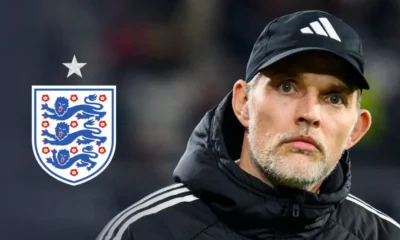The 2022 World Cup preparations are in top gear across the globe with nations across the world putting much needed energy to their squads to feature at the most Prestigious Competition in Qatar.
Africa boasts of massive triumphs when it comes to age grade football but have failed to impress during the biggest football spectacle.
Nigeria remains the most successful country when it comes to the U17 FIFA World Cup, while African teams have made it to the final of the FIFA U20 World Cup on five occasions – with Ghana emerging as World Champions in 2009.

Sadio Mane
Despite these impressive feats at age-grade competitions, making an appreciable impact at the senior World Cup has been a near-impossible task.
While Africa has produced some of Europe’s biggest soccer stars in recent years, including Cameroon’s Samuel Eto’o and Ivory Coast’s Didier Drogba, What’s perhaps more surprising is that given all the soccer talent in Africa, the countries there have failed to field teams themselves that can truly challenge perennial soccer superpowers like Brazil and Germany.
Since the competition’s inception in 1930, no African team has made it past the quarter-final, {Cameroon 1990, Senegal 2002 & Ghana 2010}.Pelé famously predicted in 1977 that an African nation would win the World Cup by the year 2000. It probably seemed like a safe bet given the continent’s passion for soccer and the millions of kids who grow up playing the game. But it hasn’t happened.
What’s driving this underperformance? To win at sports, you need to find, develop and nurture talent, and by doing that requires money, know-how, and some kind of administrative infrastructure. Few African countries have any.
Most African kids train at the thousands of informal soccer schools that dot neighborhoods across Africa, under the guidance of coaches who often have no formal training and very few resources. There aren’t many high-quality academies offering the kind of training a young player might find in Europe.

Mane, Salah and Mahrez
The shortage of top-notch academies is mainly driven by a lack of resources, a problem exacerbated by corruption at all levels of African soccer.
That corruption was in full view ahead of the Russia World Cup as the president of the Ghana Football Association, Kwesi Nyantaki, was caught on film taking a bribe and resigned.
Until African officials stop lining their pockets with money that could be spent identifying and developing the best young talent the continent has to offer, dreams of an African nation winning the World Cup will remain elusive.
African negligence of the grassroots system is another thing that drags African football success behind. In the early 1990s, most players on the national team were products of grassroots football. In developed countries such as Spain and Germany, players are picked from most football academies.
In Africa, the grassroots system has been neglected. Talents and dreams are being destroyed because of this ugly trend.
Grassroots football produced players like Messi, Neymar, and Ronaldo. For growth and development to take place in Africa, grassroots football needs to be re-established, In the 2018 World Cup Emmanuel Amuneke, a former Nigerian player took to his social media account to share his thoughts on how Africa will continue to underperform if they will not take note of the grassroots sports saying, Africa’s biggest undoing is their failure to invest in grassroots programs.
“This has been a great World Cup so far and just goes to show that some nations have invested in grassroots programmes to grow their football and unearth talents that are now playing on the biggest stage,” he wrote on Instagram.
The management or coaching system in Africa is weak. Most players who are old or out of form are still being invited to play because of their status in the team. This ugly trend has created a division among the players in the Squad. This is a crucial issue that needs to be addressed going forward.
The management needs to be ruthless and unbiased for the teams to grow.
Once more the continent is gearing preparations for the Qatar 2022 World Cup for another shot. Preparations had better start in earnest if any breakthroughs are going to happen. One thing is clear, successful club careers for African players in Europe don’t necessarily translate into success for their home teams at the World Cup level and that one is the bitter truth.
















You must be logged in to post a comment Login